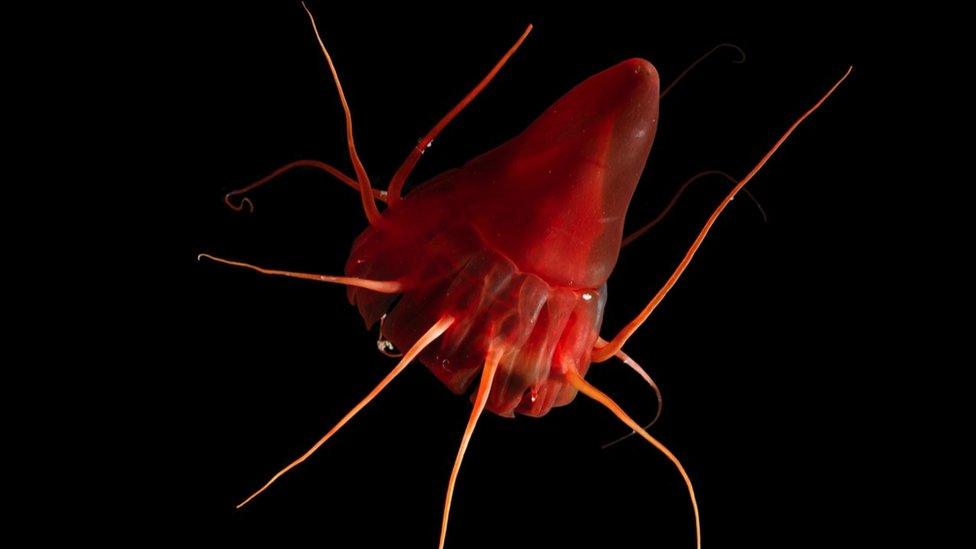Thousands of dead jellyfish wash up on beach
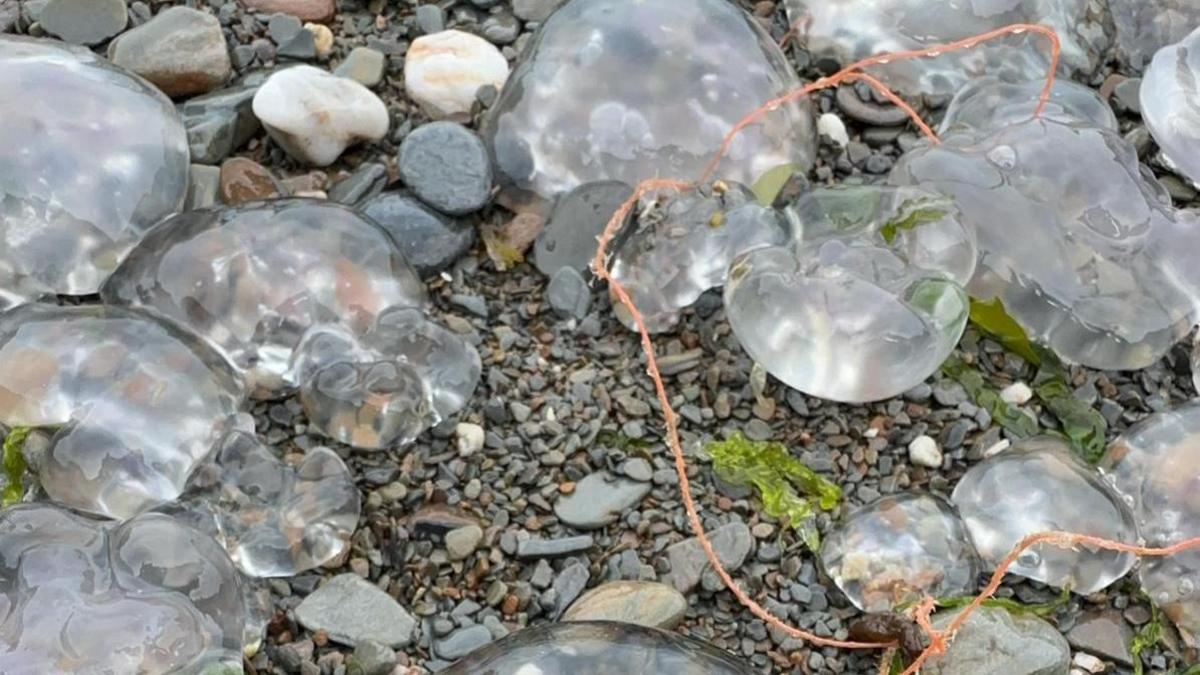
The moon jellyfish are a typical sight at this time year
- Published
Beachgoers have spoken of their surprise at the "surreal" sight of thousands of dead jellyfish washed up on the shore.
The moon jellyfish were spotted at Broadsands Beach near Ilfracombe.
One beachgoer said she had to abandon a paddle-boarding trip because there were so many of them in the sea.
An expert said the jellyfish, which have a mild sting, could have been affected by a change in salinity of the seawater after heavy rain.
'Like the apocalypse'
Saira Franklin, from Liskeard in Cornwall, was spending last weekend with her family in north Devon when she stumbled on the "surreal" sight.
"There were so many of them dead on the shore, it was like the apocalypse," she said.
"We had to suspend our SUP plans, but it was still an adventure and it was nice to see the intricate details of the jellyfish."
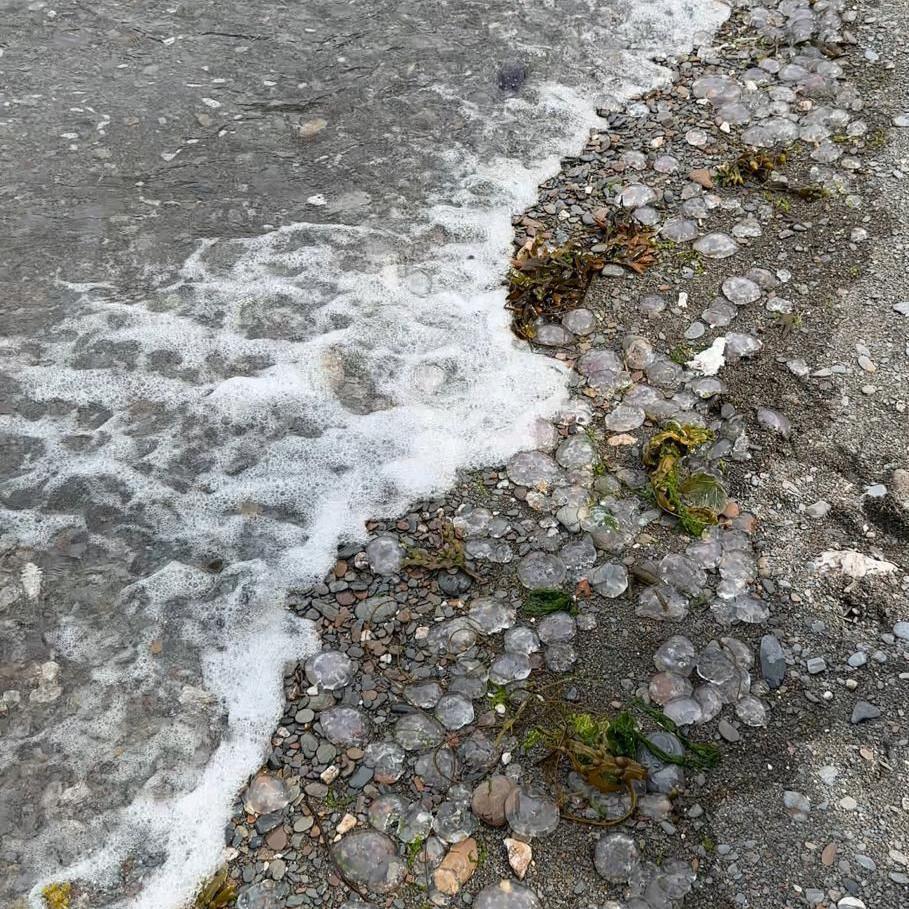
The jellyfish were thick in the water said a beachgoer
Sting advice
Ruth Chamberlain from Project Jellyfish in Kent said jellyfish were attracted to plankton on the surface.
The moon jellyfish attract the ocean sunfish, which feeds on them.
Barrel jellyfish are also common in the summer and, to a lesser extent, compass jellyfish, she said.
Both come with a sting which can be serious to anyone who is allergic to the venom, she said.
The NHS has information on first aid treatment for stings, external, external, and recommends people seek medical advice for swelling or if in severe pain.
Jellyfish can also act as refuges and nurseries for young fish who shelter among their tentacles.
Follow BBC Devon on X (formerly Twitter), external, Facebook, external and Instagram, external. Send your story ideas to spotlight@bbc.co.uk, external.
Related topics
Related stories
- Published17 July 2024
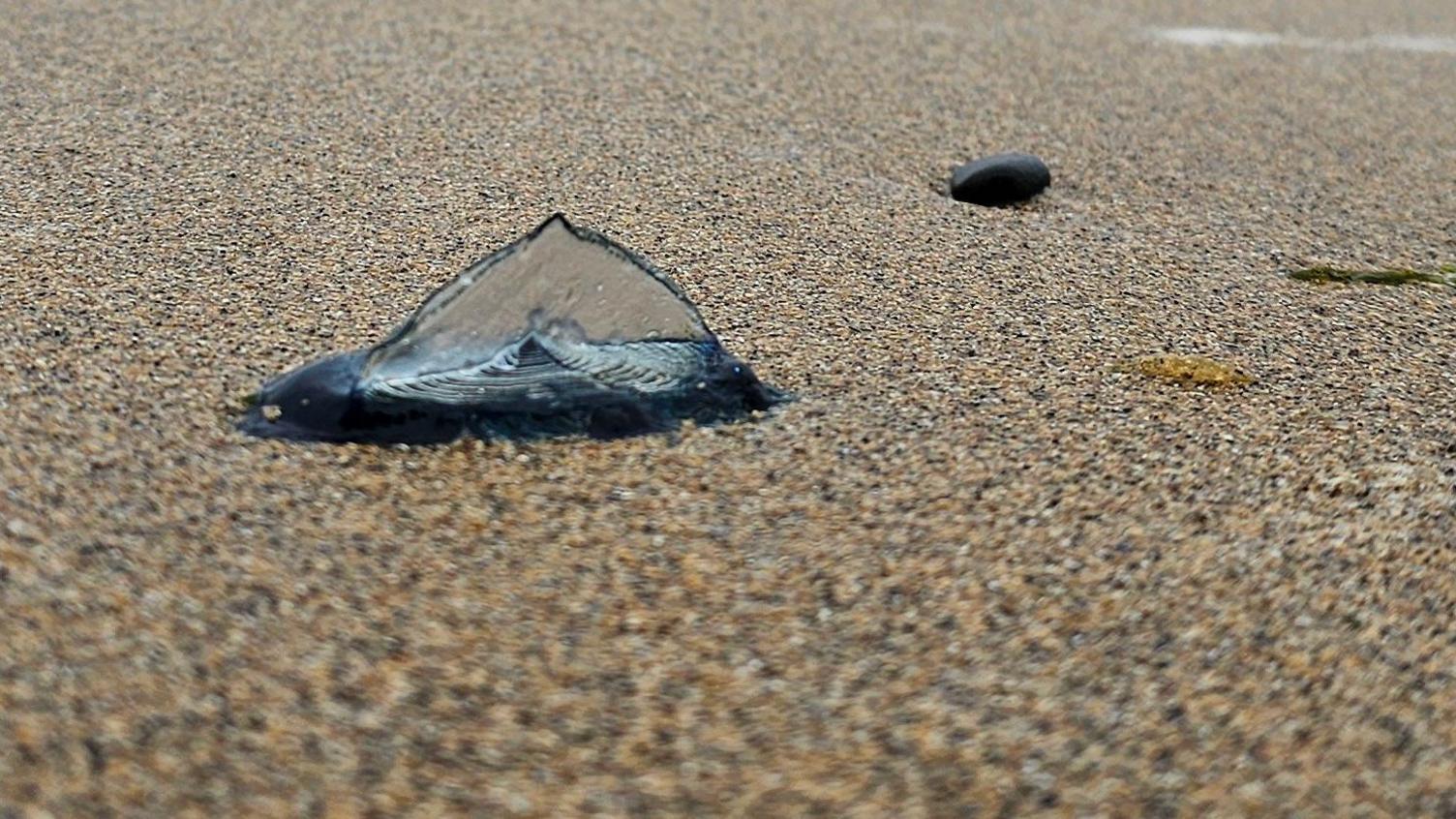
- Published4 July 2024
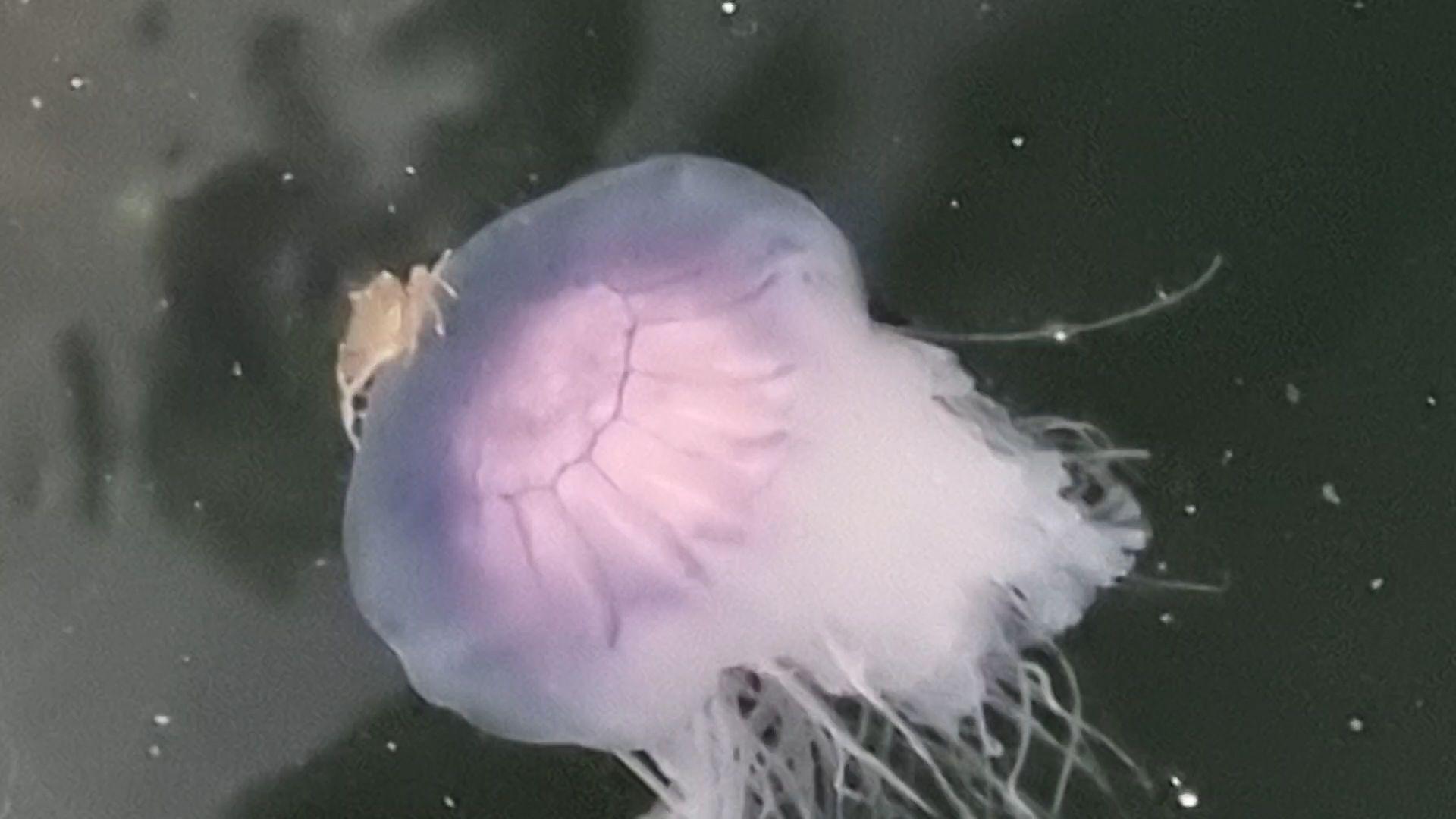
- Published21 November 2023
